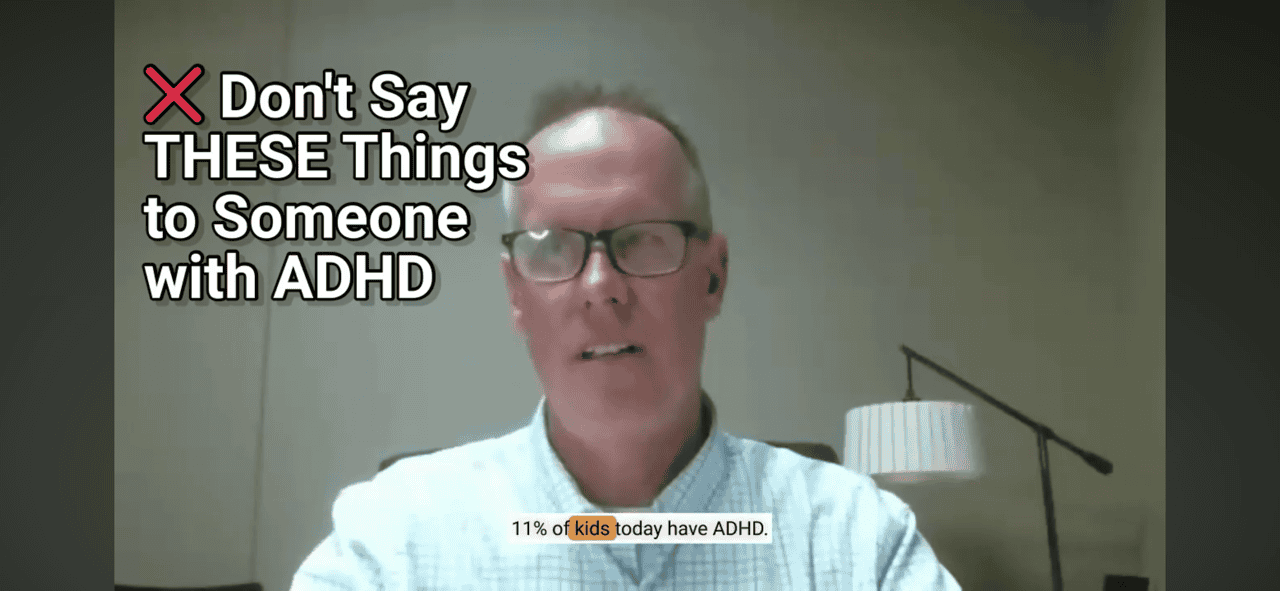Phrases To Not Say To Someone With ADHD:
If you have a loved one diagnosed with ADHD, there are some phrases to not say to someone with ADHD. If we do not struggle with attention issues or ADHD, it can be difficult to understand the extent to which it impacts others. To help, below are some phrases to not say to someone with ADHD:
If you have a loved one diagnosed with ADHD, there are some phrases to not say to someone with ADHD. If we do not struggle with attention issues or ADHD, it can be difficult to understand the extent to which it impacts others. To help, below are some phrases to not say to someone with ADHD:
“Everyone has a little ADHD sometimes.”
This dismisses the real challenges of ADHD, reducing it to something “normal” when it is a neurological condition. It can minimize their struggles and might make them feel invalidated.
“Just try harder” or “If you wanted to, you could focus.”
ADHD isn’t about a lack of willpower or motivation; it’s a neurological issue that makes concentration genuinely difficult.
“ADHD isn’t real” or “It’s just an excuse.”
This statement can be hurtful. ADHD is a recognized disorder with a wealth of scientific research behind it and invalidating it can negatively impact self-esteem.
“Why can’t you just sit still or focus?”
These are often ADHD traits, and a person with ADHD isn’t behaving this way on purpose. Asking questions like this can sound accusatory, making them feel like their symptoms are a choice.
Many people with ADHD struggle with executive functioning, making it hard to organize tasks or stay on top of responsibilities. Labeling this as “laziness” is incorrect.
“You’re overreacting.”
ADHD often amplifies emotions, making them feel stronger than intended. Dismissing these emotions as an overreaction can be very frustrating to the individual.
“You just need to get more organized.”
For someone with ADHD, getting organized can be very challenging. Implying that it’s as simple as trying harder can be frustrating, as it minimizes their struggle with executive functions.
“You don’t seem like you have ADHD.”
ADHD varies from person to person and can be invisible. This is especially true of individuals diagnosed with Inattentive ADHD as they are more prone to zome out than struggle with hyperactivity and impulsivity.
Rather than these types of statements, try offering empathy and understanding. Simple supportive phrases like “I’m here to help however you need,” “That sounds tough; let me know if I can support you,” or “Thank you for explaining” go a long way in making someone feel valued and understood.
If you or a loved one are seeking ADHD help, call LearningRx in Eagan. We have worked with over 7,000 individuals diagnosed with ADHD in the past 5 years, consistently achieve strong results and have peer-reviewed research demonstrating cognitive skill gains as well as improvements in cooperative behaviors, self-discipline and confidence.







